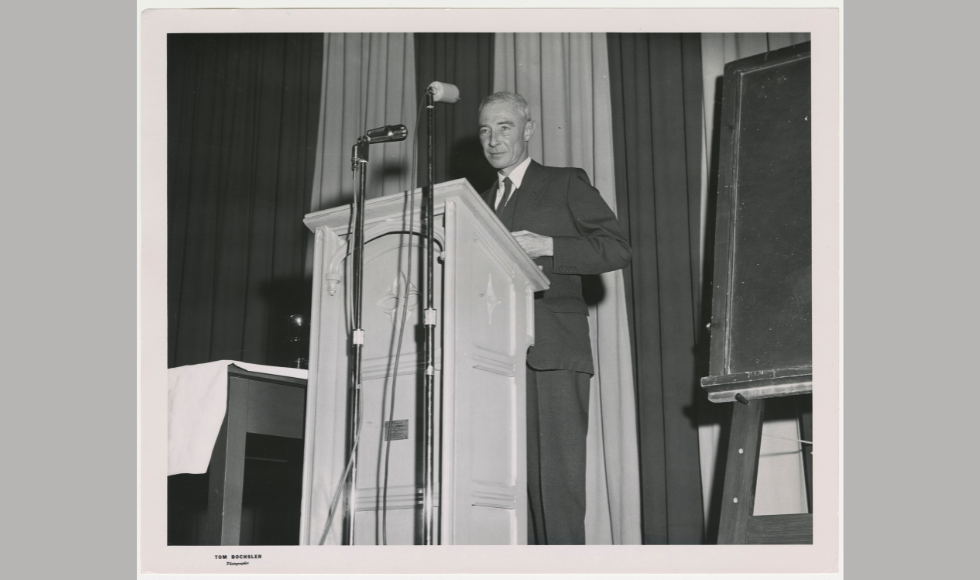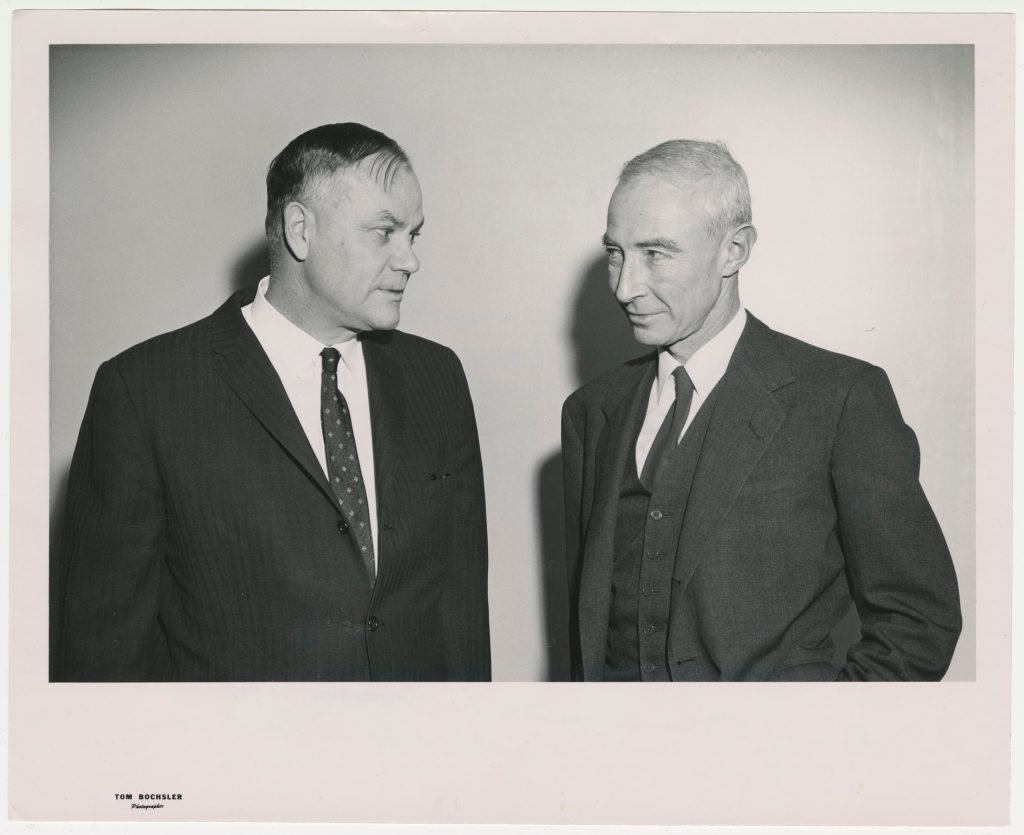The Flying Trapeze: Oppenheimer’s McMaster triple-feature

J. Robert Oppenheimer delivered three talks at McMaster as part of the Whidden Lectures in 1962, explaining concepts from physics, reflecting on his role creating the atomic bomb and urging scientists to help create a peaceful future. (McMaster University Library photo)
In January 1962, nearly eight years after being stripped of his security clearance by the Atomic Energy Commission, J. Robert Oppenheimer delivered three talks at McMaster as part of the Whidden Lectures.
Oppenheimer’s 1962 lecture series, “The Flying Trapeze: Three Crises for Physicists,” addressed three areas of his concern, Space and Time, Atom and Field, and War and the Nations. The lectures were recorded, transcribed and published as a book in 1964.
The crowd to hear Oppenheimer speak at McMaster was so large, the lectures were held in the Drill Hall instead of Convocation Hall.
In his lectures, Oppenheimer used simple terms to explain physics concepts such as relativity, gravity and nuclear structure to a general audience, reflected on his role creating the atomic bomb and urged scientists to help create a peaceful future.
“We think of this as our contribution to the making of a world which is varied and cherishes variety, which is free and cherishes freedom, and which is freely changing to adapt to the inevitable needs of change in the twentieth century and all centuries to come,” said Oppenheimer, “but a world which, with all its variety, freedom, and change, is without nation states armed for war and above all, a world without war.”
Oppenheimer delivered the lectures partially off-the-cuff, wrote McMaster theoretical physics professor Melvin A. Preston, who edited the book version of The Flying Trapeze.
“The three lectures … were given by Professor Oppenheimer from only sketchy outline notes,” Preston wrote.
“It was a most stimulating experience to hear these lectures, to witness Professor Oppenheimer’s occasional search for the precise word, and to notice the wealth of illustrations that sprang to his mind to illuminate each idea.”

Oppenheimer’s contributions to physics and interests beyond the field made him an ideal speaker for the series, wrote Edward Togo Salmon, Principal of McMaster’s University College at the time.
“The success of the Los Alamos project in wartime was largely due to his genius and to the inspiration and leadership he gave to his associates,” he wrote in a foreword to The Flying Trapeze.
“He is, however, more than an atomic physicist. A great humanist who is deeply concerned about man and his survival, he is a versatile scholar of wide interests and deep culture.”
“All who had the privilege of hearing the Whidden Lectures in 1962 will agree that it is difficult to envisage anyone more eminently suitable to deliver them.”
The Whidden Lectures were established in 1954 by McMaster Board of Governors member and Chancellor Edward Carey Fox to honour the passing of former university chancellor Rev. Howard P. Whidden.
The talks aimed to bring together the university’s academic departments and featured distinguished speakers from various disciplines.
Notable participants over the years have included archaeologist William F. Albright, linguist Noam Chomsky, literary critic Northrop Frye and philosopher Charles De Koninck.

